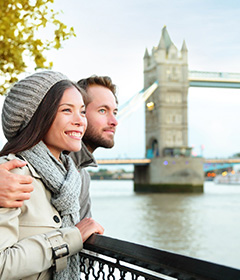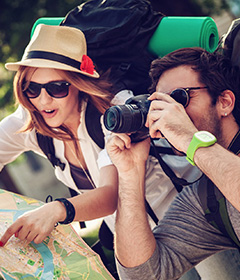In today’s fast-paced world, the concept of wellness travel has gained significant traction as people seek ways to rejuvenate their bodies and minds. Far beyond mere relaxation, these transformative journeys offer a holistic approach to health, incorporating cutting-edge science, ancient wisdom, and the healing power of nature. From coastal retreats to mountain resorts, wellness destinations are designed to address the interconnected aspects of physical, mental, and emotional well-being.
As stress-related illnesses continue to rise, more individuals are turning to wellness holidays as a means of recalibrating their lives and fostering long-term health. These experiences go beyond traditional vacations, offering structured programmes that blend evidence-based therapies with immersive natural environments. Whether you’re seeking to reduce stress, improve fitness, or explore mindfulness practices, wellness travel provides a unique opportunity to invest in your health while discovering new horizons.
Psychoneuroimmunology: scientific basis of wellness travel
The field of psychoneuroimmunology (PNI) forms the scientific foundation for many wellness travel experiences. This interdisciplinary area of study explores the complex interactions between psychological processes, the nervous system, and the immune system. Research in PNI has demonstrated that our thoughts, emotions, and experiences can significantly impact our physical health and vice versa.
Wellness travel capitalises on these findings by creating environments and experiences that positively influence the mind-body connection. For example, stress reduction techniques taught during retreats can lead to measurable changes in immune function and inflammatory markers. Similarly, exposure to nature and engaging in mindfulness practices have been shown to lower cortisol levels and improve overall well-being.
By understanding the principles of PNI, wellness travel destinations can tailor their offerings to maximise health benefits. This might include programmes that combine physical activity, nutrition, stress management, and sleep optimisation to create a comprehensive approach to wellness that addresses multiple aspects of health simultaneously.
Biophysical effects of destination environments
The environments in which wellness retreats are situated play a crucial role in their healing potential. Different natural settings offer unique biophysical effects that can contribute to improved health and well-being. From the ionised air of coastal regions to the phytoncides released by forest trees, these environmental factors can have profound impacts on our physiology and psychology.
Blue space therapy at coastal retreats
Blue space therapy refers to the health benefits associated with spending time near water. Coastal wellness retreats harness these effects, offering programmes that incorporate activities like beach walks, sea swimming, and oceanside meditation. The sight and sound of water have been shown to reduce stress, lower blood pressure, and improve mood.
Research indicates that the negative ions present in sea air can boost serotonin levels, enhancing feelings of well-being and alertness. Additionally, the rhythmic sound of waves can induce a meditative state, promoting relaxation and improving sleep quality. Many coastal wellness destinations integrate these natural elements into their therapies, creating a synergistic approach to healing.
Forest bathing in japan’s shinrin-yoku destinations
The Japanese practice of Shinrin-yoku , or forest bathing, has gained international recognition for its health benefits. Wellness retreats in Japan’s forested areas offer guided experiences that encourage participants to immerse themselves in the forest atmosphere using all their senses.
Studies have shown that forest environments can reduce stress hormones, lower blood pressure, and boost immune function. The phytoncides released by trees have antimicrobial properties and can increase the activity of natural killer cells in the body. Forest bathing experiences often combine gentle walking, mindfulness exercises, and breathwork to maximise these health-promoting effects.
Negative ion exposure in mountain wellness resorts
Mountain environments are rich in negative ions, which are believed to have numerous health benefits. Wellness resorts situated in alpine regions capitalise on this natural phenomenon, offering activities and therapies that maximise exposure to these beneficial particles.
Negative ions are thought to increase oxygen flow to the brain, resulting in higher alertness, decreased drowsiness, and more mental energy. Some studies suggest that negative ion therapy may help alleviate symptoms of seasonal affective disorder and chronic depression. Mountain wellness programmes often include outdoor activities like hiking and meditation to enhance the effects of negative ion exposure.
Thermal spring balneotherapy at european spa towns
Balneotherapy, the therapeutic use of thermal spring water, has been practiced for centuries in European spa towns. These wellness destinations offer a unique combination of natural healing elements and modern medical approaches. The mineral-rich waters are believed to have various health benefits, including improving circulation, reducing inflammation, and easing skin conditions.
Many European thermal spa resorts offer structured programmes that combine bathing in thermal waters with other therapies such as massage, hydrotherapy, and physiotherapy. The warm water and buoyancy of thermal pools can also provide relief for musculoskeletal conditions and promote relaxation.
Mind-body interventions in wellness tourism
Mind-body interventions form a core component of many wellness travel experiences. These practices recognise the intimate connection between mental and physical health, offering techniques that address both simultaneously. From ancient Eastern practices to modern Western approaches, mind-body interventions can help travellers achieve a deeper sense of balance and well-being.
Mindfulness-based stress reduction retreats
Mindfulness-Based Stress Reduction (MBSR) is a structured programme developed by Jon Kabat-Zinn that combines mindfulness meditation, body awareness, and yoga. Many wellness retreats now offer MBSR courses or incorporate elements of the practice into their programmes.
MBSR has been shown to reduce anxiety, depression, and pain in various populations. Participants learn techniques to cultivate present-moment awareness and develop a non-judgmental attitude towards their thoughts and experiences. These skills can be particularly valuable for managing stress and improving overall quality of life long after the retreat has ended.
Yoga and ayurveda immersions in rishikesh, india
Rishikesh, often called the “Yoga Capital of the World,” offers immersive experiences in yoga and Ayurveda, India’s traditional system of medicine. These retreats provide a holistic approach to health, combining physical postures, breathing exercises, meditation, and personalised Ayurvedic treatments.
Participants can expect to learn various yoga styles, from gentle Hatha to more dynamic Ashtanga practices. Ayurvedic consultations often complement the yoga sessions, offering individualised dietary recommendations and herbal remedies based on one’s dosha or body type. The serene setting of Rishikesh, with the Ganges River flowing nearby, adds to the transformative nature of these experiences.
Tai chi and qigong programs in china’s sacred mountains
China’s sacred mountains, such as Wudang and Songshan, offer unique wellness experiences centred around the ancient practices of Tai Chi and Qigong. These gentle, flowing movements combined with focused breathing and meditation are designed to cultivate qi , or life energy.
Wellness programmes in these locations often include instruction from master practitioners, allowing participants to deepen their understanding of these arts. The practices are believed to improve balance, flexibility, and strength while also reducing stress and enhancing mental clarity. The stunning natural surroundings of China’s mountain landscapes provide an inspiring backdrop for these transformative experiences.
Vipassana meditation courses at global centres
Vipassana, which means “to see things as they really are,” is one of India’s most ancient meditation techniques. Wellness seekers can participate in intensive 10-day silent retreats at Vipassana centres worldwide. These courses offer a deep dive into the practice, with participants maintaining noble silence and following a strict daily schedule of meditation.
The goal of Vipassana is to achieve self-transformation through self-observation. Practitioners learn to observe sensations in the body without reacting, developing equanimity and insight. While challenging, many participants report profound shifts in their mental and emotional well-being following these retreats.
Nutritional approaches in health-focused holidays
Nutrition plays a vital role in wellness travel, with many destinations offering specialised dietary programmes designed to support health and healing. These nutritional approaches often draw from both traditional wisdom and modern nutritional science, providing travellers with new perspectives on food and its impact on well-being.
Plant-based detox retreats in costa rica
Costa Rica’s lush, tropical environment provides an ideal setting for plant-based detox retreats. These programmes typically offer a menu rich in organic, locally-sourced fruits and vegetables, designed to support the body’s natural detoxification processes.
Participants may engage in juice fasting, raw food diets, or whole food plant-based eating, depending on the specific retreat. These nutritional approaches are often combined with yoga, meditation, and nature experiences to create a comprehensive cleansing experience. The abundance of fresh, tropical produce in Costa Rica makes these retreats particularly appealing for those looking to reset their eating habits.
Mediterranean diet immersions in greece
The Mediterranean diet, known for its health benefits, takes centre stage in many Greek wellness retreats. These programmes offer an immersive experience in this heart-healthy way of eating, which emphasises olive oil, fresh vegetables, whole grains, and moderate amounts of fish and wine.
Participants often have the opportunity to learn about traditional Greek cooking methods, visit local markets, and even participate in olive harvests. The nutritional education is typically complemented by activities that reflect the Mediterranean lifestyle, such as leisurely walks, social meals, and stress-reducing practices like siesta.
Fasting clinics in germany’s black forest
Germany’s Black Forest region is home to several renowned fasting clinics that offer medically supervised fasting programmes. These clinics draw on the tradition of therapeutic fasting developed by Dr Otto Buchinger in the early 20th century.
Programmes typically involve a period of calorie restriction or complete fasting, supported by light broths and juices. The fasting period is carefully monitored by medical professionals and often includes complementary therapies such as hydrotherapy, massage, and gentle exercise. These clinics claim that fasting can help with various health conditions and promote cellular regeneration.
Macrobiotic cuisine experiences in japan
Macrobiotic diet, which emphasises whole grains, local vegetables, and balanced eating, finds its roots in traditional Japanese philosophy. Wellness retreats in Japan offer immersive experiences in macrobiotic living, teaching participants about food selection, preparation, and mindful eating practices.
These programmes often include cooking classes, visits to organic farms, and education about the principles of yin and yang in food. The macrobiotic approach extends beyond diet, incorporating lifestyle recommendations that aim to create balance in all aspects of life. Many participants report improvements in digestion, energy levels, and overall well-being after adopting macrobiotic principles.
Adventure therapy and ecopsychology in nature-based travel
Adventure therapy and ecopsychology represent cutting-edge approaches in wellness travel that leverage the healing power of nature and challenging outdoor experiences. These programmes are designed to foster personal growth, build resilience, and deepen one’s connection with the natural world.
Adventure therapy often involves activities like wilderness trekking, rock climbing, or white-water rafting. These experiences are carefully structured to push participants out of their comfort zones in a safe, supported environment. The challenges faced during these activities can lead to increased self-confidence, improved problem-solving skills, and enhanced emotional regulation.
Ecopsychology, on the other hand, explores the relationship between human psychology and the natural environment. Wellness travel experiences based on ecopsychological principles might include guided nature walks, wildlife observation, or eco-art therapy. These activities aim to foster a sense of interconnectedness with nature, which can lead to improved mental health and a greater sense of environmental stewardship.
Nature-based wellness travel not only benefits individual health but also promotes conservation awareness, creating a positive feedback loop between personal and planetary well-being.
Many wellness destinations now offer programmes that combine elements of adventure therapy and ecopsychology. For example, a retreat might include a challenging mountain hike followed by a guided meditation at the summit, or a kayaking expedition paired with journaling exercises about one’s relationship with water. These integrated approaches provide a holistic experience that addresses physical, mental, and spiritual aspects of wellness.
Post-travel integration: sustaining wellness benefits
While wellness travel can provide profound benefits, the real challenge often lies in maintaining these positive changes once returning to daily life. Many wellness retreats now recognise this and offer post-travel support to help participants integrate their experiences and sustain their newfound habits.
Some strategies for post-travel integration include:
- Follow-up coaching sessions via video call
- Online communities for retreat alumni to share experiences and support each other
- Personalised wellness plans for continued practice at home
- Resources such as guided meditation recordings or recipe books
- Periodic check-ins to track progress and provide motivation
Successful integration often involves making small, sustainable changes rather than trying to replicate the retreat experience in its entirety. This might mean incorporating a brief daily meditation practice, making gradual dietary shifts, or finding local classes to continue practices learned during the retreat.
It’s also important to recognise that wellness is an ongoing journey rather than a destination. Regular wellness check-ins and periodic mini-retreats can help maintain the benefits gained from more intensive wellness travel experiences. By viewing wellness travel as part of a broader lifestyle approach to health and well-being, individuals can continue to reap the rewards long after their journey has ended.
As the field of wellness travel continues to evolve, we can expect to see even more innovative approaches to healing and personal growth. From cutting-edge technologies to rediscovered ancient practices, these experiences offer powerful tools for transformation. By choosing wellness travel, you’re not just taking a holiday – you’re investing in your long-term health and happiness.


